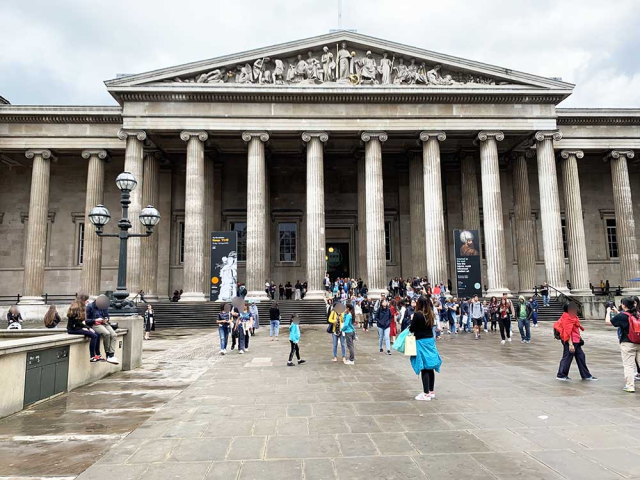
The London landmark gives manga the fine-art treatment.
London’s British Museum is one of the world’s premier cultural institutions, and a look at its schedule of upcoming events includes “Troy: myth and reality,” and “Inspired by the east: how the Islamic world influenced western art.” Before either of those open, though, there’s the British Museum’s current special exhibition, simply dubbed “Manga.”
More old-fashioned artistic and historical academics might argue that Japanese comic books are entirely too insubstantial a subject material for a world-class museum to devote such energy to, but that would be overlooking an important precedent. One of the first Japanese artforms to gain widespread appreciation in the west was ukiyo-e, woodblock prints. But though ukiyo-e are seen as fine art now, during their heyday in the 1700s and 1800s, in Japan they were primarily low-cost artwork for the common masses, showcasing everyday life or erotic fantasies.
So really, why shouldn’t manga, for which slice-of-life and titillating fan service are established genres unto themselves, be given a similarly scholarly look?
Our Japanese-language writer Seiji,a big manga fan himself, just so happened to be in London last week, and so he decided to see how the British Museum would handle its treatment of the topic, walking underneath the banner of Golden Kamuy’s hunter girl Asirpa and into the museum’s hallowed halls.
Not surprisingly, international mega-hits such as Dragon Ball, One Piece, Sailor Moon, and Naruto were accounted for, and Seiji felt a mix of nostalgia and pride as he saw that the stories he grew up with have left similarly strong impressions on people outside Japan.
But the exhibit seeks to examine manga from a broad perspective, and so it also highlights early pioneers, such as Testuwan Atom/Astro Boy creator Osamu Tezuka.
Tezuka made no secret of how he himself was influenced by Disney, and the exhibit even has some side-by-side comparisons of the two.
A separate area draws parallels between Katsuhiro Otomo, of Akira fame, and ukiyo-e artist Utagawa Kuniyoshi.
Important manga artists that many western fans may not be familiar with are also saluted, such as Daijiro Morohoshi, whose focus is on folklore and mythology.
Likewise, many modern manga readers may never have picked up a series by Moto Hagio, creator of Poe no Ichizoku and They Were Eleven, but she’s one of the most respected figures in the world of shojo manga/girls’ comics, and her works in the category were among the first to be professionally translated into English.
▼ Also part of the exhibition: Akiko Higashimura’s Princess Jellyfish and Snowflakes’ Tiger
The exhibition also groups manga into themes or story-telling devices, such as “Transformation” (where you’ll find Attack on Titan) or “Faith and belief” (Saint Oni-san, a.k.a. that manga where Jesus and Buddha are apartment roommates in Japan).
There’s also a section on “Love and desire,” which discusses manga’s long-held willingness to deal with various types of sexuality, and in sometimes explicit ways.
▼ One part of the exhibit is set up to look like a book store, and there’s also a photo of an actual Japanese bookseller from a bygone era.
The exhibit also touches on Studio Ghibli anime and cosplay, neither of which are manga per se, but still part of the overall otaku culture collection that most manga fans have at least some interest in.
Seiji was curious as to why Golden Kamuy’s Asirpa was chosen to be the face of the exhibition, seeing as how fervor for the series seems to have cooled off following its 2018 TV anime adaptation. The organizers told him that Aspira was selected because she’s immediately recognizable as a manga character, and also because as a strong young woman drawn in a shonen (boys’ comic) style, her design is likely to be visually appealing to all genders.
And finally, bringing us back to the manga/ukiyo-e comparison, the British Musuem is displaying what it calls a manga drawn by ukiyo-e master Hokusai, with some amazing lettering work that would make any modern comic artist jealous.
The British Museum’s Manga exhibition is going on until August 26, but if these photos have whetted your appetite for manga art, there’s plenty more to be found within the pages of the collected volumes of their respective series.
Related: British Museum Manga special exhibition website
Photos ©SoraNews24
● Want to hear about SoraNews24’s latest articles as soon as they’re published? Follow us on Facebook and Twitter!
[ Read in Japanese ]

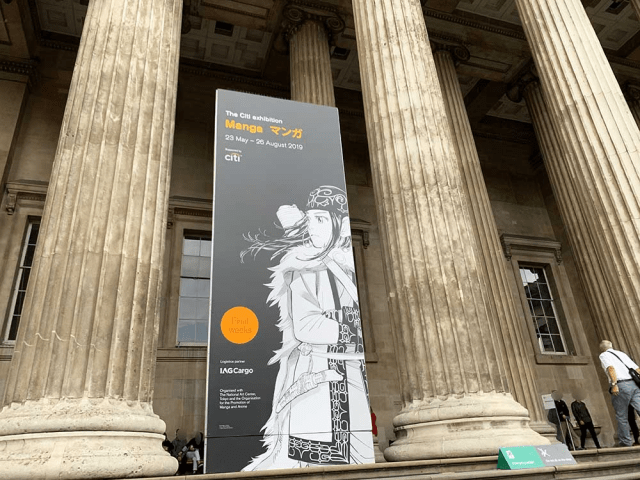
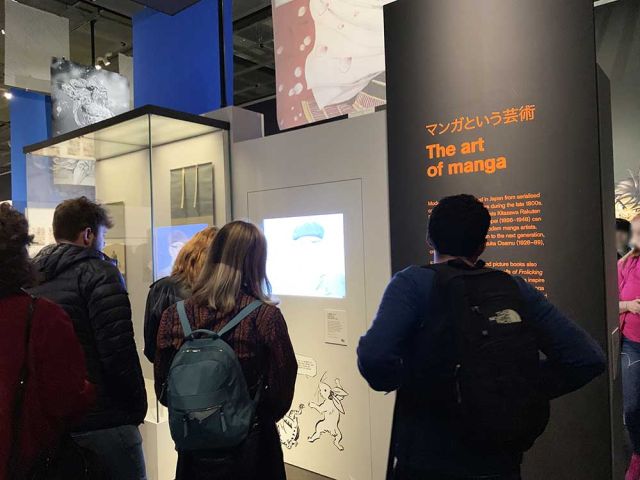
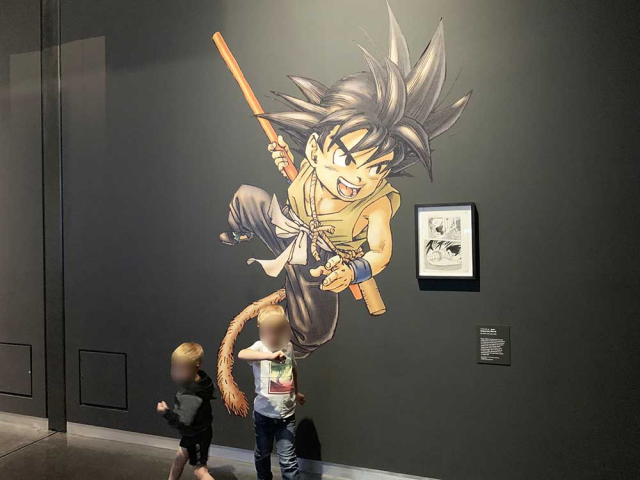
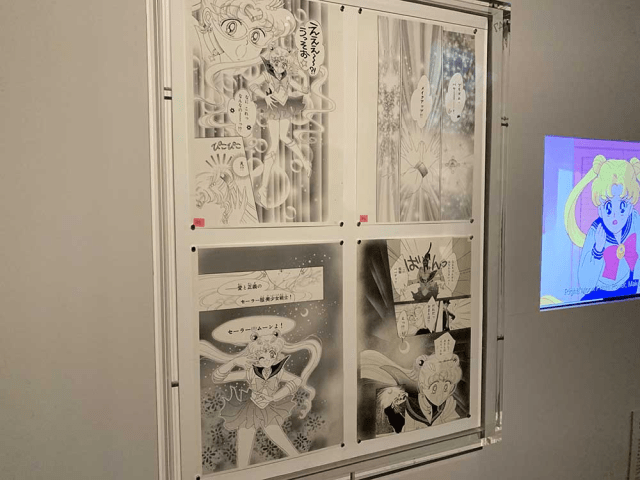
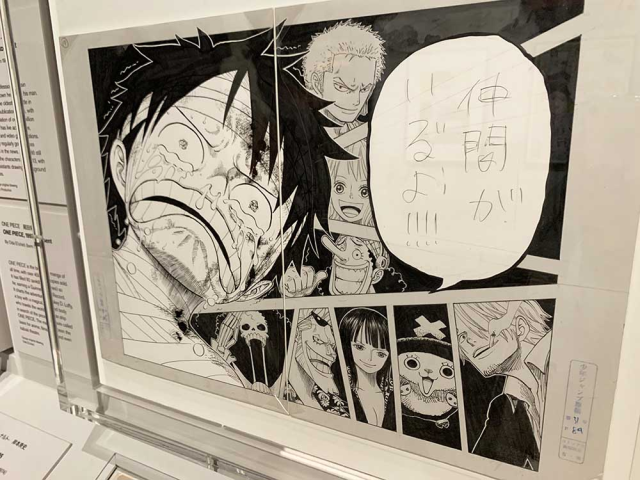
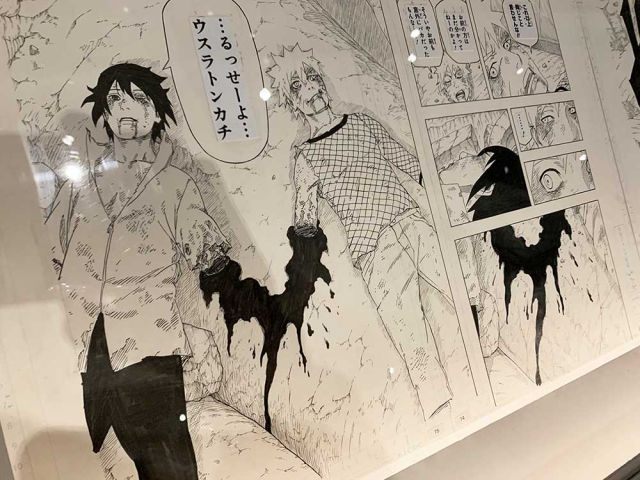
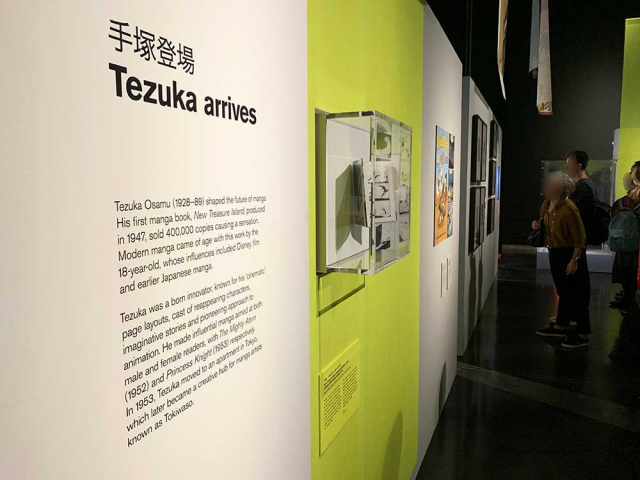
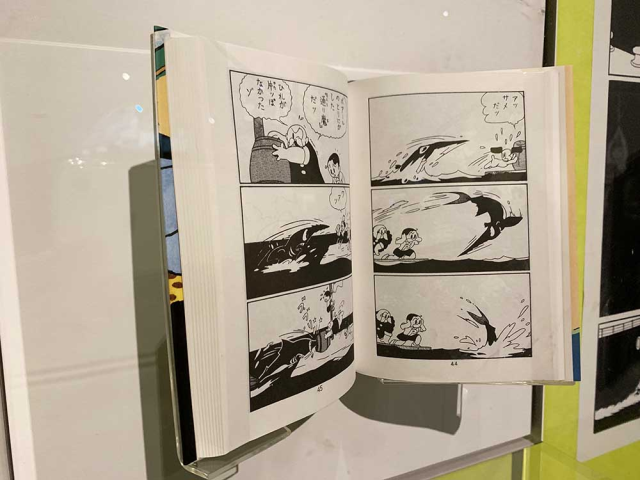
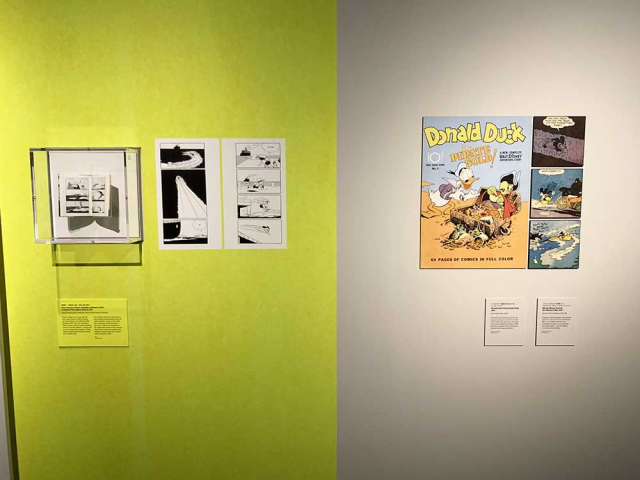
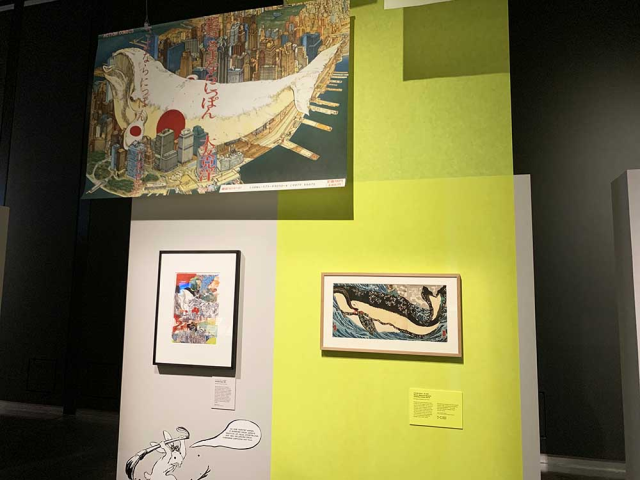

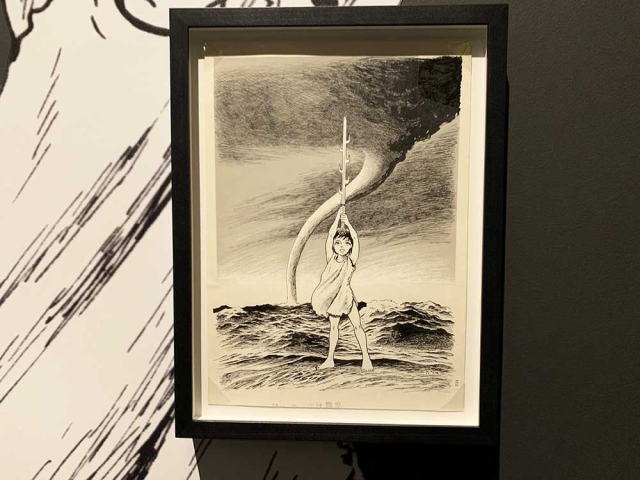
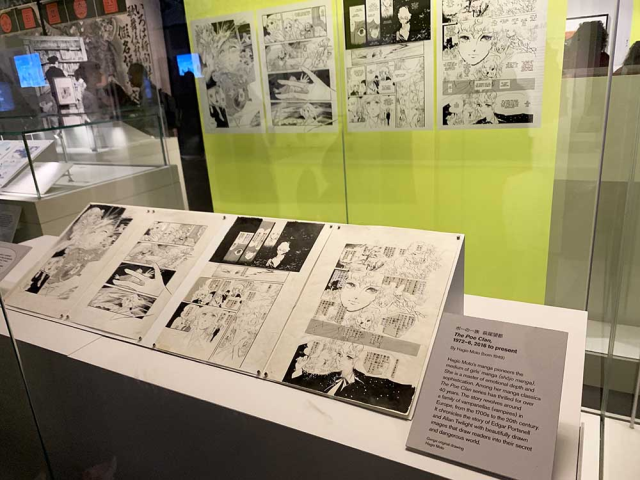
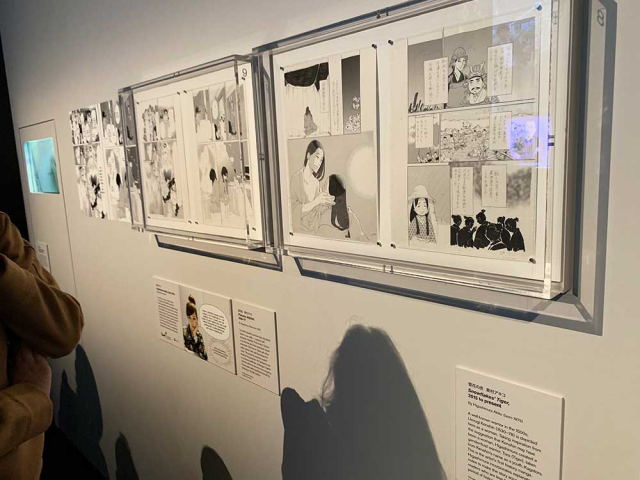
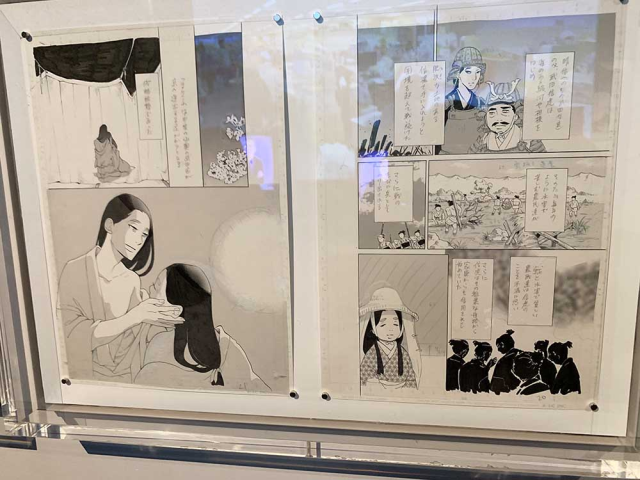
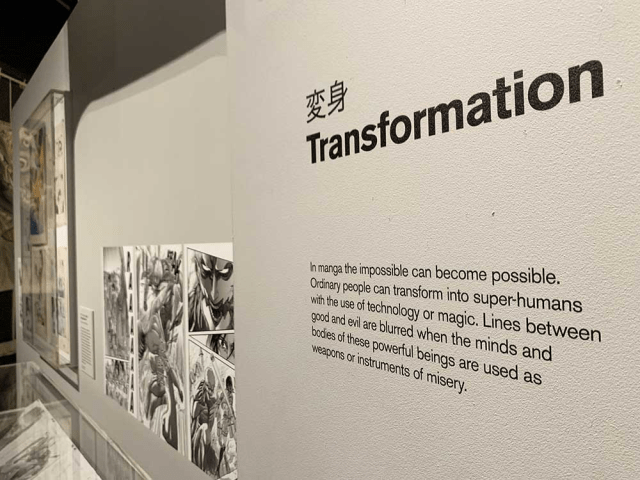
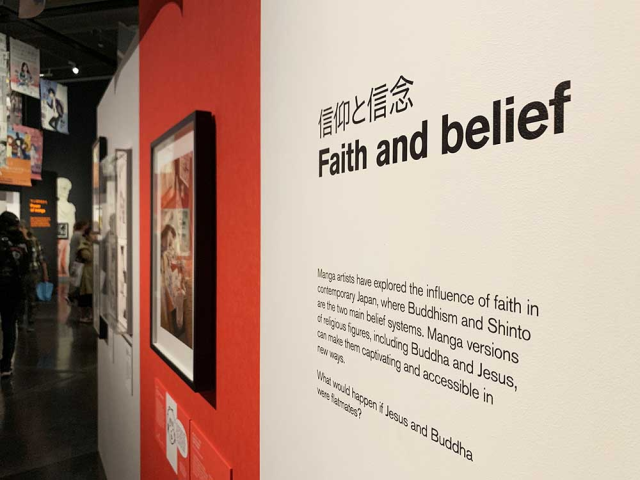
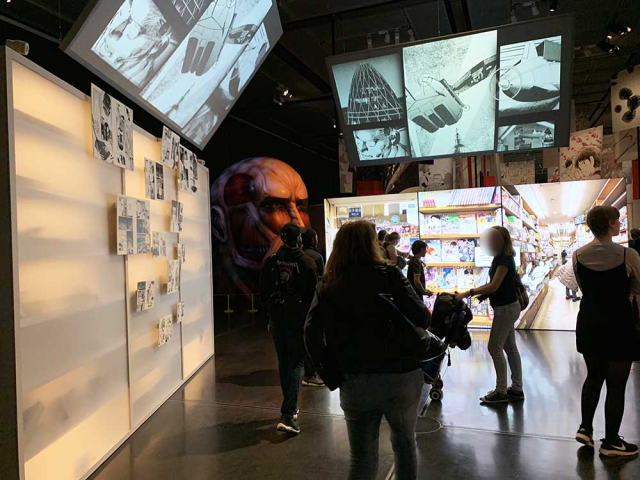
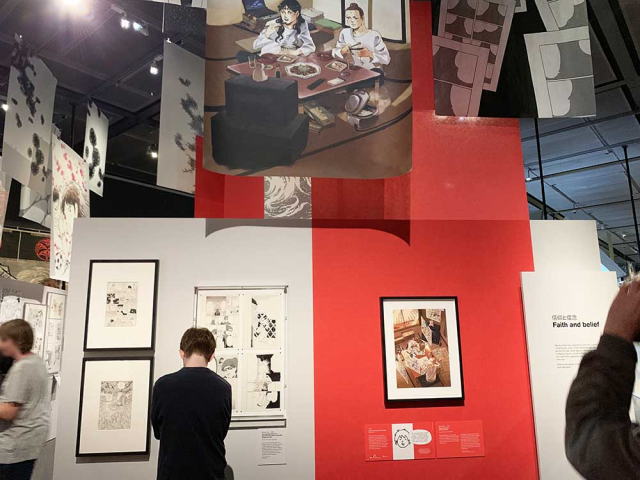
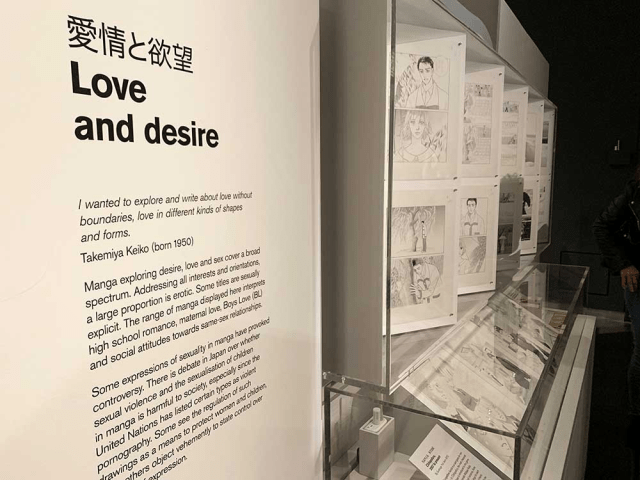
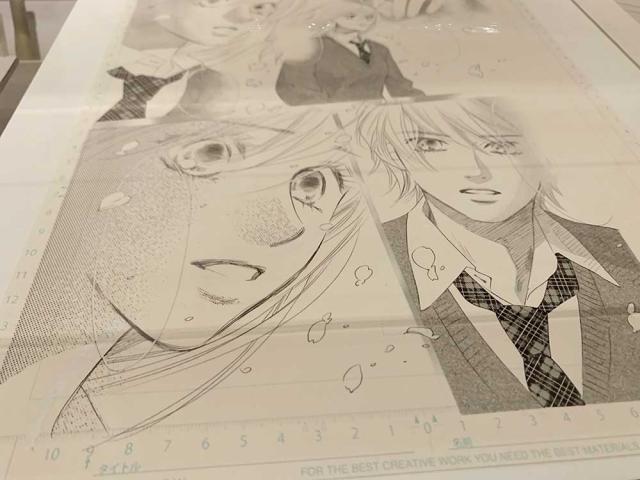
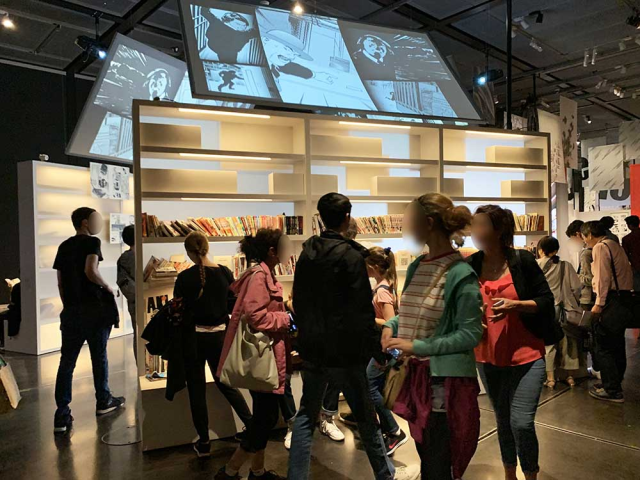
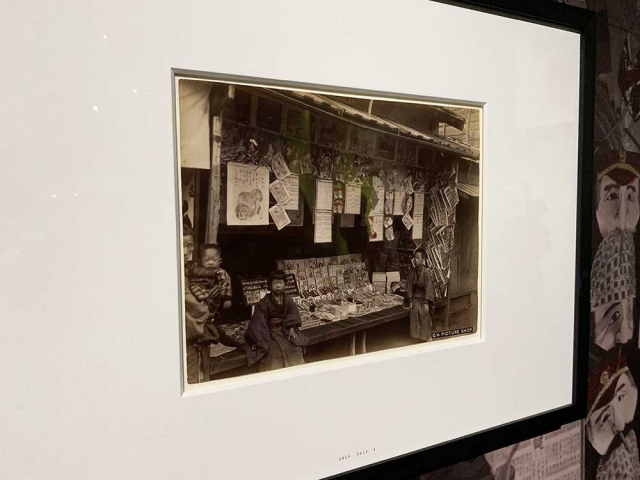
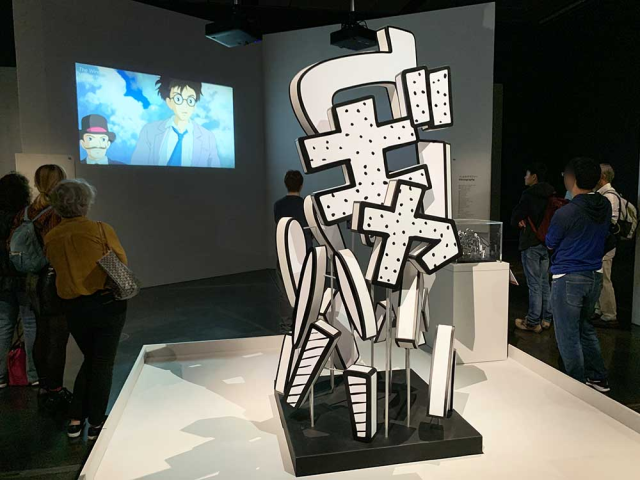
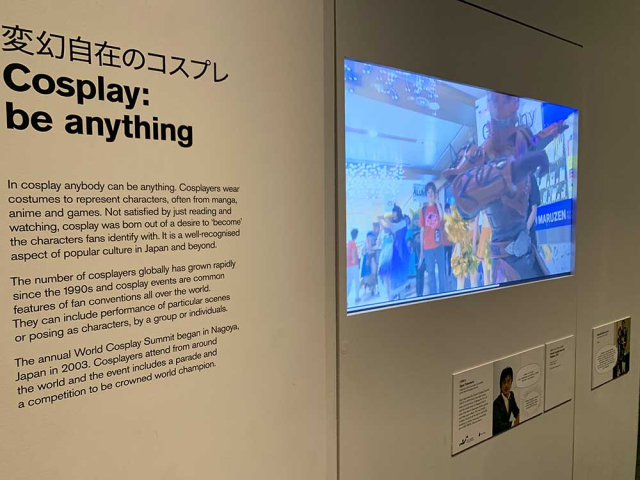
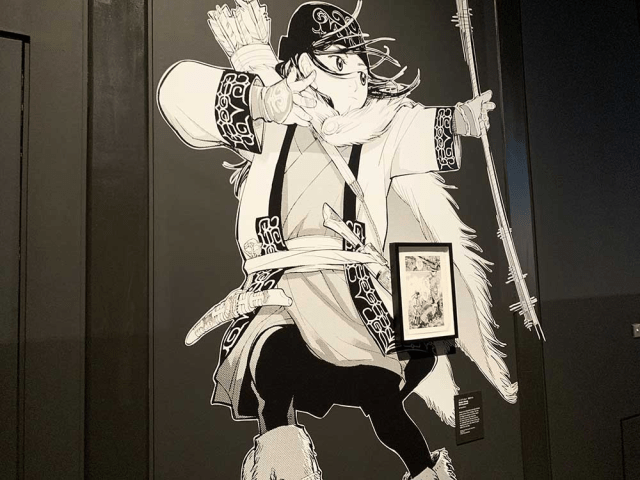

 328-foot manga art made by foot in snow field to celebrate end of Hokkaido-set Golden Kamuy【Video】
328-foot manga art made by foot in snow field to celebrate end of Hokkaido-set Golden Kamuy【Video】 Amazing ukiyo-e art exhibit gives you the chance to step inside a woodblock print and snap photos
Amazing ukiyo-e art exhibit gives you the chance to step inside a woodblock print and snap photos Special exhibits on Studio Ghibli’s art and architecture coming soon to two Tokyo museums
Special exhibits on Studio Ghibli’s art and architecture coming soon to two Tokyo museums Hayao Miyazaki’s concept art and ideas for the Ghibli Museum to be revealed in new exhibit
Hayao Miyazaki’s concept art and ideas for the Ghibli Museum to be revealed in new exhibit Hayao Miyazaki makes rare video appearance to check out Ghibli Museum’s revamped cafe【Video】
Hayao Miyazaki makes rare video appearance to check out Ghibli Museum’s revamped cafe【Video】 Osaka establishes first designated smoking area in Dotonbori canal district to fight “overtourism”
Osaka establishes first designated smoking area in Dotonbori canal district to fight “overtourism” Tokyo Skytree turns pink for the cherry blossom season
Tokyo Skytree turns pink for the cherry blossom season Adorable Totoro acorn key holders come with a special guest hidden inside[Photos]
Adorable Totoro acorn key holders come with a special guest hidden inside[Photos] Japan’s new “Cunte” contact lenses aren’t pronounced like you’re probably thinking they are
Japan’s new “Cunte” contact lenses aren’t pronounced like you’re probably thinking they are Starbucks Japan adds new sakura Frappuccino and cherry blossom drinks to the menu
Starbucks Japan adds new sakura Frappuccino and cherry blossom drinks to the menu Psyduck teapot produced by Japanese craftspeople is here to serve up a headache-soothing cuppa
Psyduck teapot produced by Japanese craftspeople is here to serve up a headache-soothing cuppa Foreign tourists in Japan will get free Shinkansen tickets to promote regional tourism
Foreign tourists in Japan will get free Shinkansen tickets to promote regional tourism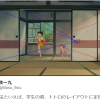 Manga artist raises question online about false perspective in Ghibli film My Neighbor Totoro
Manga artist raises question online about false perspective in Ghibli film My Neighbor Totoro Poo sakura are in full bloom at Unko Museum’s cherry blossom festival in Tokyo
Poo sakura are in full bloom at Unko Museum’s cherry blossom festival in Tokyo Visit the mythical cave that hid the Sun Goddess in Japanese mythology
Visit the mythical cave that hid the Sun Goddess in Japanese mythology The 10 most annoying things foreign tourists do on Japanese trains, according to locals
The 10 most annoying things foreign tourists do on Japanese trains, according to locals Starbucks Japan releases new sakura goods and drinkware for cherry blossom season 2026
Starbucks Japan releases new sakura goods and drinkware for cherry blossom season 2026 Naruto and Converse team up for new line of shinobi sneakers[Photos]
Naruto and Converse team up for new line of shinobi sneakers[Photos] Is Sapporio’s Snow Festival awesome enough to be worth visiting even if you hate the snow? [Pics]
Is Sapporio’s Snow Festival awesome enough to be worth visiting even if you hate the snow? [Pics] Japan has trams that say “sorry” while they ride around town…but why?
Japan has trams that say “sorry” while they ride around town…but why? Sakura Totoro is here to get spring started early with adorable pouches and plushies
Sakura Totoro is here to get spring started early with adorable pouches and plushies Starbucks Japan unveils new sakura Frappuccino for cherry blossom season 2026
Starbucks Japan unveils new sakura Frappuccino for cherry blossom season 2026 Poop is in full bloom at the Unko Museums for cherry blossom season
Poop is in full bloom at the Unko Museums for cherry blossom season Now is the time to visit one of Tokyo’s best off-the-beaten-path plum blossom gardens
Now is the time to visit one of Tokyo’s best off-the-beaten-path plum blossom gardens Playing Switch 2 games with just one hand is possible thanks to Japanese peripheral maker
Playing Switch 2 games with just one hand is possible thanks to Japanese peripheral maker Japan’s newest Shinkansen has no seats…or passengers [Video]
Japan’s newest Shinkansen has no seats…or passengers [Video] Foreigners accounting for over 80 percent of off-course skiers needing rescue in Japan’s Hokkaido
Foreigners accounting for over 80 percent of off-course skiers needing rescue in Japan’s Hokkaido Super-salty pizza sends six kids to the hospital in Japan, linguistics blamed
Super-salty pizza sends six kids to the hospital in Japan, linguistics blamed Take a trip to Japan’s Dododo Land, the most irritating place on Earth
Take a trip to Japan’s Dododo Land, the most irritating place on Earth Archfiend Hello Kitty appears as Sanrio launches new team-up with Yu-Gi-Oh【Pics】
Archfiend Hello Kitty appears as Sanrio launches new team-up with Yu-Gi-Oh【Pics】 Survey asks foreign tourists what bothered them in Japan, more than half gave same answer
Survey asks foreign tourists what bothered them in Japan, more than half gave same answer Japan’s human washing machines will go on sale to general public, demos to be held in Tokyo
Japan’s human washing machines will go on sale to general public, demos to be held in Tokyo Starbucks Japan releases new drinkware and goods for Valentine’s Day
Starbucks Japan releases new drinkware and goods for Valentine’s Day We deeply regret going into this tunnel on our walk in the mountains of Japan
We deeply regret going into this tunnel on our walk in the mountains of Japan Studio Ghibli releases Kodama forest spirits from Princess Mononoke to light up your home
Studio Ghibli releases Kodama forest spirits from Princess Mononoke to light up your home Major Japanese hotel chain says reservations via overseas booking sites may not be valid
Major Japanese hotel chain says reservations via overseas booking sites may not be valid Put sesame oil in your coffee? Japanese maker says it’s the best way to start your day【Taste test】
Put sesame oil in your coffee? Japanese maker says it’s the best way to start your day【Taste test】 No more using real katana for tourism activities, Japan’s National Police Agency says
No more using real katana for tourism activities, Japan’s National Police Agency says The City of Angels is now the City of Samurai with Los Angeles museum’s awesome armor exhibition
The City of Angels is now the City of Samurai with Los Angeles museum’s awesome armor exhibition Tokyo museum’s current exhibition offers a dose of retro style and romance from 100 years ago
Tokyo museum’s current exhibition offers a dose of retro style and romance from 100 years ago Fly-through video of Sailor Moon Museum exhibit shows what’s waiting for fans in Tokyo【Video】
Fly-through video of Sailor Moon Museum exhibit shows what’s waiting for fans in Tokyo【Video】 Immersive ukiyoe exhibition in Osaka adds some scented flair
Immersive ukiyoe exhibition in Osaka adds some scented flair Stunning ukiyo-e art experience floats over to Tokyo for its latest exhibition
Stunning ukiyo-e art experience floats over to Tokyo for its latest exhibition Harry Potter permanent exhibition museum to open in Tokyo
Harry Potter permanent exhibition museum to open in Tokyo Japanese government wants to acquire original anime and manga art for creation of national archive
Japanese government wants to acquire original anime and manga art for creation of national archive Naruto art exhibition coming to Tokyo and Osaka with free, new manga for all attendees
Naruto art exhibition coming to Tokyo and Osaka with free, new manga for all attendees We check out Otaru’s real-life locales that inspired scenes in hit anime Golden Kamuy
We check out Otaru’s real-life locales that inspired scenes in hit anime Golden Kamuy Ishinomori Manga Museum in Miyagi holding an exhibit for 1970s Miyazaki film Panda! Go Panda!
Ishinomori Manga Museum in Miyagi holding an exhibit for 1970s Miyazaki film Panda! Go Panda! Amazing exhibition of Japan’s legendary “cursed katana” is going on right now【Photos】
Amazing exhibition of Japan’s legendary “cursed katana” is going on right now【Photos】 Japanese museum to hold “wonder” exhibit packed with marvelous curiosities from nature
Japanese museum to hold “wonder” exhibit packed with marvelous curiosities from nature Small trees, big beauty await at Japan’s Bonsai Art Museum【Photos】
Small trees, big beauty await at Japan’s Bonsai Art Museum【Photos】 Science museum’s elemental lockers provide chemistry lesson while you stash your stuff
Science museum’s elemental lockers provide chemistry lesson while you stash your stuff OMGooooaal! Pros nail the incredible “Twin Shoot” move from soccer manga Captain Tsubasa【Videos】
OMGooooaal! Pros nail the incredible “Twin Shoot” move from soccer manga Captain Tsubasa【Videos】